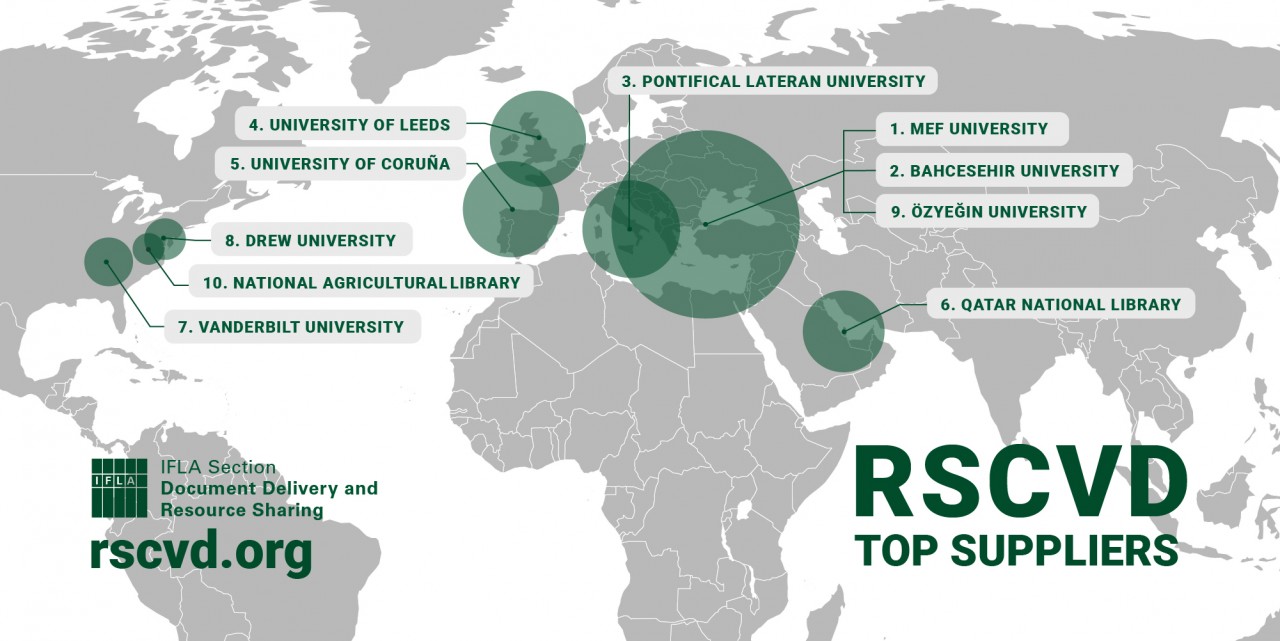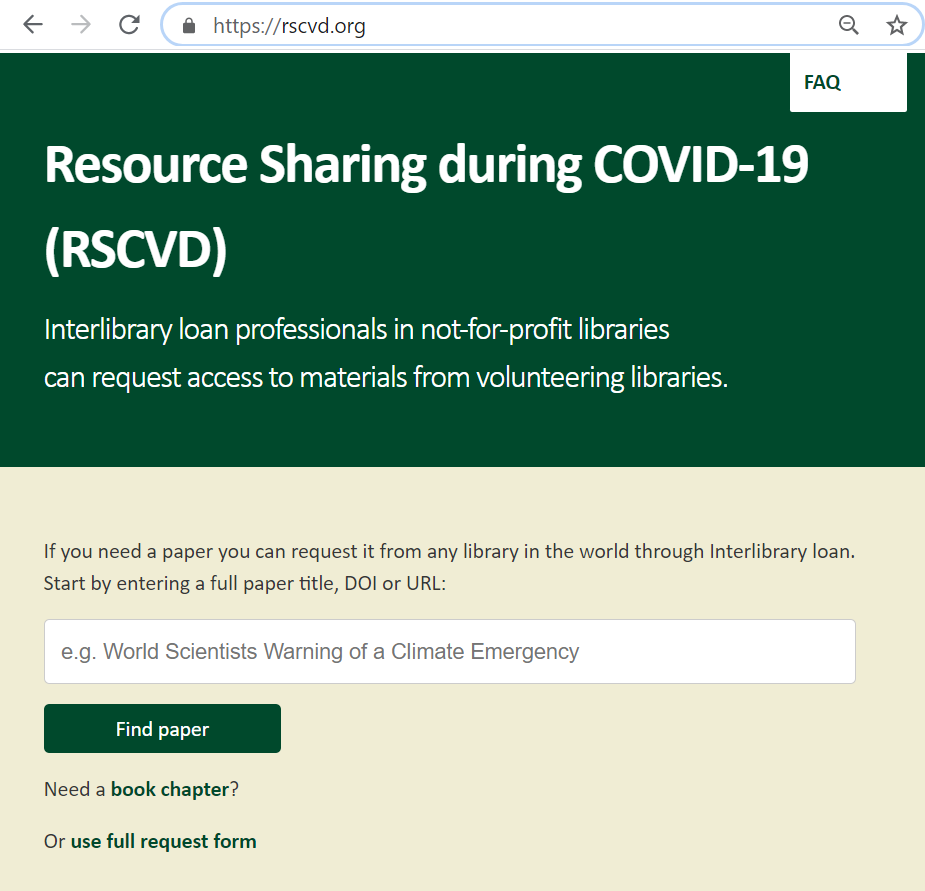Interlibrary loaning across the globe: a gap turned into a successful new global service by an IFLA Professional Unit
24 July 2020
IFLA’s Document Delivery and Resource-Sharing Professional Unit (IFLA DDRS) has launched a new serviceâ¯to support the sharing of resources across borders as a way of relieving some of the disruption caused by the pandemic.â¯
The COVID-19 global pandemic continues to affect all aspects of education and research worldwide. Libraries face numerous challenges in maintaining existing services and programs, including providing access to physical and digital collections.
IFLA’s Document and Delivery Resource Sharing Standing Committee provides a solution, that is aligned with the IFLA strategy and specifically Key Initiative 3.2.
To offset these challenges, the IFLA DDRS Professional Unit collaborated with Open Access Button, a non-profit committed to connecting users with free, legal, full-text content, to create an online request form for libraries. The Committee recruited volunteers from libraries around the world and created a resource sharing service to supply content when local resource sharing options have been exhausted.
The Committee recruited volunteers from libraries around the world and created a resource sharing service to supply content when local resource sharing options have been exhausted. This project became known as RSCVD, a play on words that is both short for “received” and “resource sharing COVID” accessible at https://rscvd.org/.â¯
The project has been an incredible success. In just over two months, it received over 5,400 requests from around the world.

Staffed by 116 volunteers from 17 countries, the reach and depth of resources and participation has continued to grow. At this time, the program has a 51% fill rate on requests, which is impressive given the fledgling network of volunteers.


Given the success of the RSCVD program, the Committee has tasked a small working group to begin discussing how to build on this success and establish the service permanently.
The statistics of the engagement between April 21st and July 12th.
The vision for the future of RSCVD is not to replace local and regional resource sharing networks. Instead, it is a way to bridge and connect libraries across the world!
Want to get involved? Contact the IFLA DDRS RSCVD organisers at ifladdrs@gmail.com

